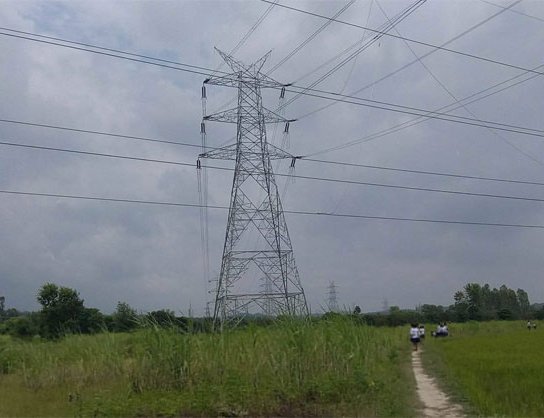
With the publication of the tender by the Nepal Electricity Authority (NEA), the formal process of selling of 200 MW surplus electricity to India begins. The NEA on Friday called for tenders and sought proposals from Indian companies for the sale of 200 MW of electricity generated from hydropower projects in Nepal.
NEA Managing Director Kul Man Ghising said that trading companies, power distribution companies and those licensed to trade electricity through the Central Electricity Regulatory Commission of India will be able to participate in the competition for the purchase of electricity.
"We have received approval to sell up to 364 MW in the Indian market, out of which we have invited tenders to sell 200 MW to those who bid higher rates through competition," said Ghising.
"The remaining electricity will be sold on the Indian Energy Exchange (IEX). The entire tender process will be completed and electricity will be made available to the selected eligible companies from July 1," he said.
With the onset of the monsoon, NEA will have surplus electricity. Due to a lack of arrangement, NEA had wasted electricity worth Rs.2 billion last year. However, the NEA will sell surplus electricity in the country for five months (from July 1 to November 15, 2022).
Companies willing to purchase electricity from Nepal will be able to submit their proposals by 12 noon on May 27, 2022, and the proposal will be opened at 1 pm on the same day, said the NEA. Provision has been made for interested companies not to submit proposals for the purchase of less than 50 MW. The companies will have to deposit 'Earnest Money' of IRs. 30,000 per MW per month for the amount of electricity they have proposed.
India has allowed the NEA to sell electricity in the Indian market considering the electricity generated from six hydropower projects in Nepal as a source. The surplus power will be exported through Dhalkebar-Muzaffarpur 400 kV cross-border transmission line.
Nepal has received approval to export 364 MW of electricity generated from NEA-owned Trishuli, Devighat, Kaligandaki 'A', Madhyamarshyangdi and Marshyangdi and Likh-4 of Green Ventures of the private sector.
- The Sentiment Of Monetary Policy Seems Focused On Increasing Eemand: FNCCI President Chandra Prasad Dhakal
- Jul 26, 2024
- Monetary Policy 081/82 Is Making The Economy More Dynamic: Governor Adhikari
- Jul 26, 2024
- Global IME Bank And Shashila Motors Signed Agreement Regarding Electric Vehicle loan
- Jul 26, 2024
- Lok Bahadur Thapa, permanent representative of the UN in New York, was appointed as the Vice President of ECOSOC
- Jul 26, 2024
- Leeladevi Gadtaula Became The First woman Chief Secretary
- Jul 26, 2024
















